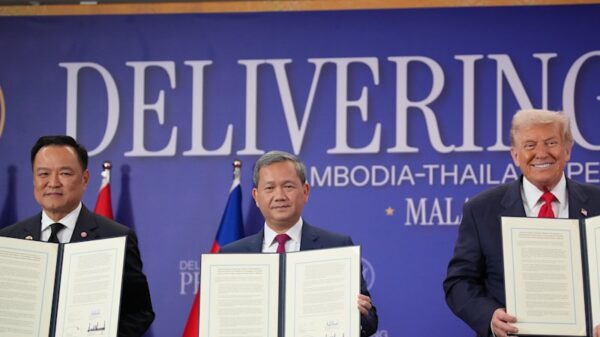Recent research indicates that immigrants in Europe and North America earn, on average, 18% less than their native counterparts. This finding raises significant questions about the integration of immigrants into the labor market amid ongoing demographic challenges, including aging populations and labor shortages in these regions.
The study, which analyzed the salaries of 13.5 million individuals across nine countries—Canada, Denmark, France, Germany, the Netherlands, Norway, Spain, Sweden, and the United States—revealed that the disparity is largely attributed to immigrants’ limited access to higher-paying jobs. The data, collected between 2016 and 2019, shows that while three-quarters of the wage gap stems from a lack of access to lucrative positions, only one-quarter is due to pay differences for similar roles between immigrants and native-born workers.
Regional Variations in Wage Disparities
The research highlighted stark variations in the immigrant pay gap across different countries. Notably, Spain exhibited the largest disparity, with immigrants earning over 29% less than locals. In contrast, Sweden, where many immigrants find employment in the public sector, showed a significantly smaller gap of just 7%. These figures do not account for unemployed immigrants or those working in the informal economy.
The origins of immigrants also played a crucial role in the findings. Immigrants from sub-Saharan Africa faced the most substantial average wage gap of 26.1%, followed by those from the Middle East and North Africa at 23.7%. Conversely, immigrants from Europe and North America experienced a more modest gap of 9%.
Another key finding suggests that second-generation immigrants tend to fare better economically compared to their parents. In countries where data was available—such as Canada, Denmark, Germany, the Netherlands, Norway, and Sweden—children of immigrants had a narrower earnings gap, averaging 5.7% less than native-born workers.
Barriers to Employment and Policy Implications
The study delved into the reasons behind these wage disparities, emphasizing that the majority of the gap resulted from immigrants working in lower-paying sectors. The average pay difference for the same role in the same company was only 4.6%, indicating a significant failure in immigration policy to fully utilize immigrant skills and talents.
The research points to systemic barriers that hinder immigrants from accessing better-paying jobs. These obstacles include complicated processes for recognizing foreign qualifications and limited access to professional networks. As a result, despite being qualified, many immigrants find themselves relegated to positions that do not reflect their skill levels.
To address these issues, experts recommend that governments focus on policies that enhance job access for immigrants. This includes investing in language training, vocational education, and providing early access to employment resources and networks. Additionally, standardizing the recognition of foreign degrees and credentials could help immigrants secure positions that match their qualifications.
Countries like Germany and France are already implementing measures to improve the situation. Germany’s Skilled Immigration Act, effective in 2024, allows foreign graduates to work while their degrees are validated. Similarly, in 2025, France reformed its Passeport Talent program to attract skilled professionals and address labor shortages, particularly in healthcare.
By ensuring that immigrants can access appropriate job opportunities, nations can benefit from increased productivity, higher tax revenues, and reduced inequality. The failure to leverage the skills of immigrant populations not only affects the individuals involved but also has broader implications for economic growth and social cohesion.
In conclusion, addressing the immigrant-native wage gap requires a multifaceted approach that goes beyond equal pay for equal work. Effective immigration policy must begin long before individuals enter the job market, focusing on the barriers that prevent skilled immigrants from fully contributing to their host societies.






























































